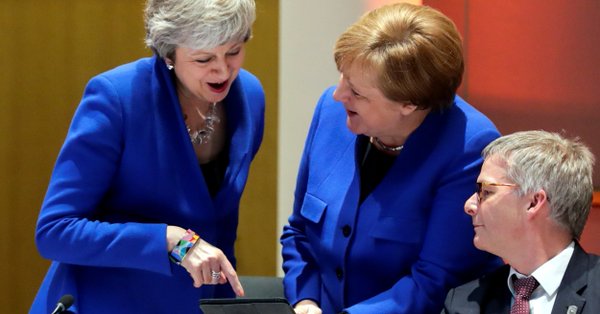Article

As a former UK ambassador, I've heard what other countries really think about Brexit. It's not compl
Looking back on two summits in which I was closely involved as an adviser to the prime minister, I can see where we started going wrong.
The American Congresswoman reeled off the list to me: Basil Fawlty, Mr Bean, Alan Partridge, David Brent. "No-one does comedy heroes like you Brits ... but we preferred it when the characters were fictional."
A Lebanese Minister, only half-joking, gave me a similar take: "When you used to say that you hoped that the parliaments in London and Beirut would be more alike, we didn't realise that this was what you meant."
You don't need to go to Washington or Beirut to notice that Britain's treble-A reputation for competence, built over centuries, is under threat. And that this is less about Brexit itself than the perception that we are — collectively — handling it by inviting the world to watch us drown.
With the extension of the process until October, EU leaders have now thrown Britain a lifeline. Or more rope to hang ourselves, depending on where you stand on Brexit. But if we are to emerge from this prolonged period of introspection, self-doubt and division, Leavers and Remainers will need to reunite around a reinvigorated international approach.
With the world becoming more perilous, there will be a temptation to focus purely on domestic security or local squabbles. Let’s be in no doubt: whatever happens on Brexit, a retreat from the world is the path to drift and decline. Our national interest now depends on us rediscovering our internationalism, and fast. Countries are strongest when they are outward-looking, pioneering, exploring, welcoming. We are best when we have a worldview based on actually viewing the world.
The starting point has to be recognition of the extent to which that world changed around us while we were busy making other plans. The era of global cooperation in which we had such a strong voice began in 1948, peaked in 1989, and ended in 2016. President Trump’s election orphaned a set of values that we thought universal and magnetic. Foreign policy in the run-up to 1914 was based on the principle of divide and conquer, 1914 to 1945 was despair and conference, and 1945 to 2015 was deter and convene. Post-2016, it has been disrupt and confuse.
Looking back on two summits in which I was closely involved as an adviser to the prime minister, the successful London G20 in 2009 was the exception to this trend, while the disastrous Copenhagen climate change conference was a sign of things to come. We hoped at the time that it was the other way round.
While we were busy building driverless cars we ended up with a driverless world. No US President has worked harder than Donald Trump to prove his critics right. But as we work out where to make our influence count, it is important to separate the policies from the pantomime, and take a hardheaded look at where his approach influences our core national interests. Does his readiness to join North Korea and Syria outside the global climate change consensus shorten the lives of our children? Do cuts to diplomacy and development make the world less safe? Do his policies in the Middle East pour oil on fires that previous administrations had tried to put out?
Humanity's story is one of the gradual – albeit with bad years, and sometimes bad decades – evolution of reason over craziness, expertise over instinct, community over tyranny, and honesty over lies. Yet it is getting harder to hold the territory that Isis and its future emulators attack as the “greyzone”, or the far-right and far-left attack as the liberal consensus. This space is where individual freedom is cherished and diverse communities interact. It is by its nature imperfect, a work in progress. The postwar international system is scaffolding built with immense sacrifice by previous generations to defend it. And to protect us from our worst instincts, and from the dangerous individual or ideology that believes it alone has the answers.
We now find out whether these checks and balances are simply being tested by American retreat, Russian disruption and the eastward shift of power. Or being tested to destruction. Our relentless focus must now be to defend the rules-based international system, with our allies, until the lights come back on in the shining city on a hill.
To do this we can be stubborn, agile internationalists, a connector and convener. We can build networks in a time of institutional failure; consensus in a time of arguments; and bridges in a time of walls. We can strive for expertise, patience and judgement in a time of fake news, outrage and echo chambers. We can be open-minded in a time of closed minds. We can be proud when our country is magnetic. Above all, we must remain curious in a time of too much certainty.
That way Britain can once again play the global role it is capable of. Against those selling the snake oil of hatred of difference as a panacea for globalisation. Against easy access to deadly weapons, and lack of justice for those who use them. Against those hawking quick fixes for a complex world. Against the inequality of opportunity that provides the Petri dish in which extremism and anger festers. We must also be a louder voice in backing liberty: to trade, move, think, create, innovate.
This all depends on the UK finding a spirit of renewal and unity at home. Now, not in six months or beyond. We do great comedy. But when we come together as a country and take ourselves more seriously, we can expect the world to take our global aspirations seriously again too.

